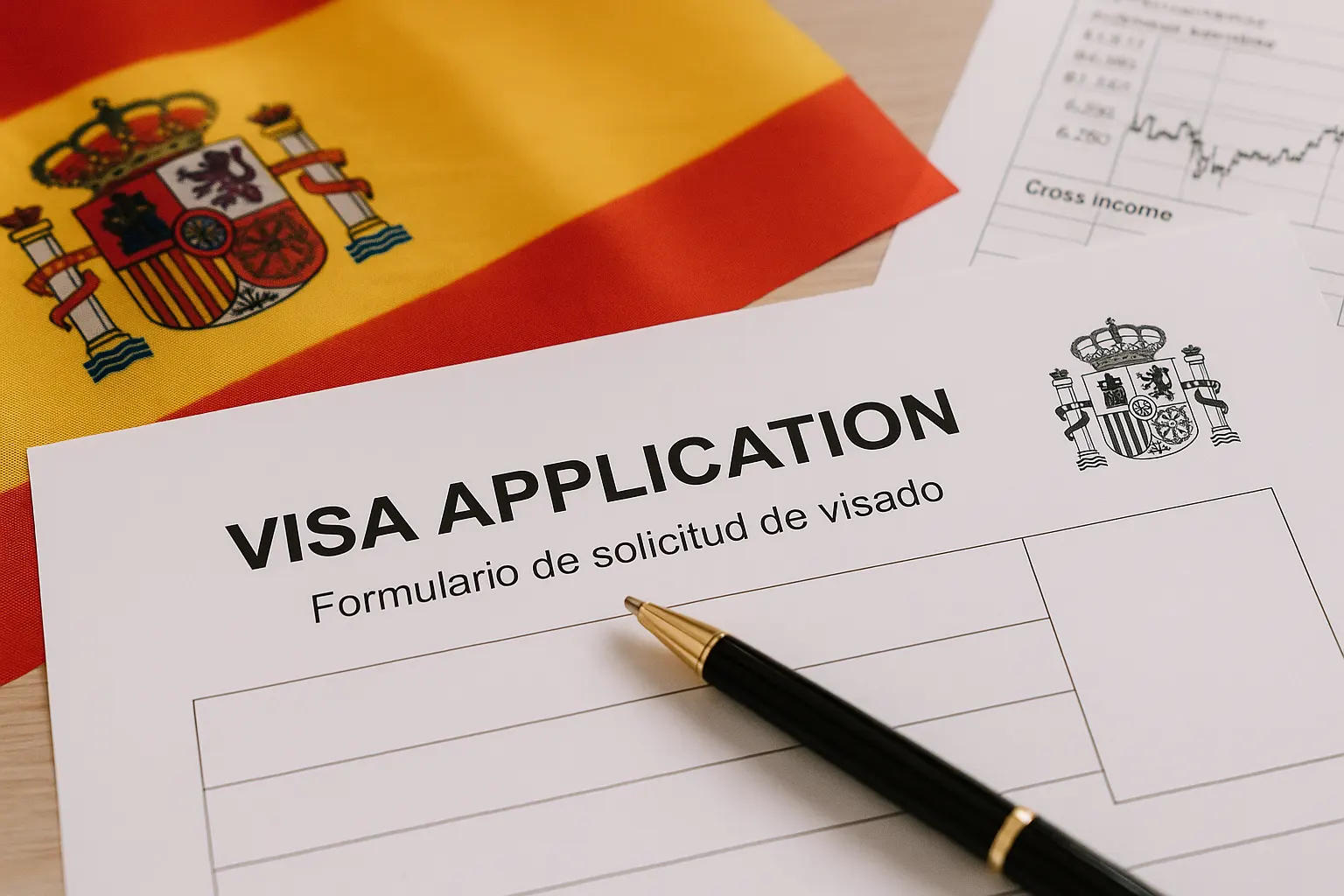Tax optimization is very important for residents who want to legally reduce their taxes in Spain. By understanding and effectively navigating the complex Spanish tax system, individuals and families can save a significant amount of money, keeping more of their income while still following local laws. It’s crucial to grasp the intricacies of taxation in Spain, considering its complexity and differences between regions.
This article serves as a complete guide on how to legally lower your tax liabilities in Spain. In this article, you will discover:
- The Beckham Law and its advantages for foreign workers
- Main income tax deductions accessible to residents
- Approaches for planning capital gains tax
- Methods to optimize wealth tax responsibilities
- Important factors for inheritance and gift taxes
- Variations in tax rates and allowances throughout Spain
- How double tax treaties can prevent double taxation on foreign income
Throughout this article, we will discuss practical tips aimed at maximizing your tax efficiency while ensuring full compliance with Spanish regulations.
1. Beckham Law: A Tax Advantage for Foreign Workers
The Beckham Law, officially known as the Special Regime for Foreign Workers, is a tax incentive designed to attract foreign talent to Spain. This regime allows qualifying individuals to be taxed as non-residents, applying a flat rate of 24% on employment income up to €600,000, rather than the progressive rates that can reach up to 47%. The law earned its nickname after footballer David Beckham, who was one of the first high-profile beneficiaries.
Benefits of the Beckham Law Spain
- Flat tax rate significantly lower than standard rates for residents
- Taxation limited only to Spanish-source income during eligibility period
- Exemption from worldwide income taxation under this regime
- Special treatment on savings income and capital gains
Requirements to Qualify for Beckham Law
Eligibility criteria focus on recent arrival and employment status:
- New Tax Residency: Must not have been a tax resident in Spain during the previous 10 years.
- Employment Contract: Must move to Spain due to an employment contract or assignment with a Spanish company or permanent establishment.
- Application Deadline: The special tax regime must be applied for within six months from the start of the work activity in Spain.
- Duration: Benefits apply for up to six years following arrival.
The Beckham Law has become popular among expatriates working in sectors such as sports, technology, and executive management. Its implementation requires careful planning and compliance with application deadlines to maximize tax efficiency under Spanish law. Also known informally as the “Mbappé Law,” it continues to be a strategic tool for foreign workers seeking favorable tax conditions in Spain.
2. Maximizing Income Tax Deductions in Spain
How to reduce tax in Spain starts with understanding the income tax deductions that can legally lower your taxable income. These deductions directly affect the amount of tax you owe, resulting in significant savings when used correctly. The Spanish tax system has various deductions available to residents, each focusing on different aspects of personal finance.
Common examples include:
- Mortgage Payments: Homeowners may deduct a percentage of mortgage interest paid on their primary residence, subject to specific conditions and acquisition dates.
- Pension Plan Contributions: Contributions made to private pension plans reduce taxable income up to legally defined limits, incentivizing long-term retirement savings.
- Charitable Donations: Donations to approved non-profit organizations provide tax credits or deductions, encouraging philanthropic activities.
Taxpayers wondering How can I reduce my income tax in Spain? should also look into deductions related to family responsibilities (such as for dependent children or disabled relatives), employment expenses if applicable, and certain regional allowances that vary across autonomous communities.
It’s important to stay updated on Spain’s tax brackets as they can greatly impact financial planning and strategies for maximizing deductions. Keeping thorough records is crucial when claiming these deductions. Make sure to keep receipts, contracts, and official certificates as proof during tax filings or audits. Seeking guidance from a specialist will help identify all eligible deductions specific to your situation, optimizing your tax liability according to current Spanish law.
3. Strategic Capital Gains Tax Planning
Capital gains tax planning is essential for residents in Spain seeking to reduce capital gains tax liabilities legally. The Spanish tax system imposes capital gains tax on profits realized from the sale of assets such as property, stocks, or other investments. Understanding how to structure transactions and reinvest proceeds can significantly impact the amount of tax owed.
Key Strategies to Optimize Capital Gains Tax
1. Reinvestment into Primary Residence
When selling a primary residence, reinvesting the sale proceeds into another primary home within two years grants an exemption from capital gains tax. This incentive encourages homeowners to upgrade or relocate without immediate tax consequences.
2. Utilizing the Main Residence Exemption
Individuals over 65 years old who sell their primary residence may be exempt from capital gains tax regardless of reinvestment, providing an additional planning opportunity for seniors.
3. Offsetting Gains with Losses
Taxpayers can offset capital gains with capital losses realized in the same fiscal year or carry forward losses from previous years, reducing taxable income related to asset sales.
4. Timing Asset Sales
Spreading sales over multiple years can prevent pushing taxpayers into higher marginal rates, optimizing overall tax liability.
Example: Selling a secondary property and using the proceeds to purchase a new primary residence ensures eligibility for capital gains exemption under Spanish law, effectively reducing taxes Spain legal ways allow.
Strategic planning around these provisions requires careful timing and knowledge of current regulations. Maximizing benefits from reinvestment rules and exemptions aligns with long-term financial goals while maintaining compliance with Spanish tax authorities.
4. Wealth Tax Optimization Strategies
Understanding Wealth Tax in Spain
Wealth tax in Spain is a tax on the net worth of individuals, including their assets and rights. It is applied annually and varies depending on the region. Understanding the intricacies of wealth tax can help residents effectively manage their tax liabilities.
Ways to Optimize Wealth Tax
Asset Type
Different asset types are subject to varying taxation rates. By structuring your assets strategically, you can potentially reduce your overall wealth tax burden. For example, investing in tax-efficient vehicles such as pension plans or real estate that qualifies for exemptions can help lower your taxable wealth.
Location
Wealth tax rates can differ between regions in Spain. Choosing to reside in regions with lower wealth tax rates or favorable deductions can be a proactive strategy to optimize your wealth tax liability. Conducting thorough research or seeking advice from tax professionals can guide you in making informed decisions regarding your residency for wealth tax purposes.
By leveraging exemptions, understanding regional disparities, and making informed investment choices, residents can effectively optimize their wealth tax obligations in Spain.
5. Inheritance and Gift Tax Planning Considerations
Planning ahead for inheritance and gift taxes is crucial for residents in Spain to ensure a smooth transfer of assets to beneficiaries while minimizing tax liabilities. By understanding the tax implications and available exemptions, individuals can protect their wealth and provide for their loved ones effectively.
Rates and Exemptions Based on Relationships Between Parties
In Spain, inheritance and gift tax rates vary depending on the relationship between the donor and the recipient. Spouses and children generally benefit from lower tax rates or exemptions compared to other beneficiaries. Exemptions may also apply based on the value of the assets transferred and the autonomous community where the parties are located.
By proactively considering inheritance and gift tax planning strategies, residents can optimize their financial legacies and ensure a seamless transfer of wealth to future generations.
6. Navigating Regional Tax Differences in Spain
Spain’s tax system allows autonomous communities to set certain tax rates and allowances independently, creating notable regional tax differences. These variations can significantly impact the overall tax burden for residents, making it crucial to understand the fiscal landscape of each region.
Key areas affected by regional differences include:
- Income tax rates: Regions such as Madrid offer some of the lowest income tax rates in Spain, while others like Catalonia or the Basque Country impose higher rates.
- Wealth tax allowances: Exemptions and thresholds vary widely; for example, Madrid provides a 100% exemption on wealth tax, whereas other regions apply standard national limits.
- Inheritance and gift tax: Significant disparities exist, with some regions granting substantial reductions or exemptions depending on family relationships.
- Deductions and credits: Certain communities allow additional deductions related to family size, disability, or investments that are not available nationwide.
Choosing residency in a region with favorable tax conditions can be an effective method to reduce taxes Spain legal ways. For instance, relocating to Madrid or the Canary Islands may result in lower income and wealth taxes compared to other autonomous communities. This strategic decision requires careful evaluation of not only tax rates but also lifestyle preferences and economic factors.
Understanding regional tax frameworks enables residents to optimize their taxation legally by aligning their residency status with regions offering beneficial fiscal policies. For expats navigating this complex landscape, this guide can provide valuable insights into maximizing benefits within Spain’s tax system.
7. Utilizing Double Tax Treaties for Tax Efficiency
Double tax treaties play a crucial role in ensuring taxpayers do not face the burden of being taxed twice on the same income. Spain has established agreements with various countries to prevent double taxation for residents. Here’s how residents can leverage these treaties for tax efficiency:
- Understanding Double Tax Treaties:
- Double tax treaties are agreements between two countries to resolve issues where the same income is taxable in both jurisdictions. These treaties aim to promote cross-border trade and investment by providing clarity on which country has the primary right to tax specific types of income.
- Impact on Reducing Double Taxation:
- Residents can benefit from these treaties by either claiming a tax credit or seeking exemptions on foreign income that has already been taxed in another country. This ensures that the taxpayer does not pay more than the higher of the two countries’ tax rates on the same income.
For instance, individuals holding a Non-Lucrative Visa in Spain, which is often sought by retirees, can navigate their residency and filing obligations while also implementing effective double taxation strategies.
By understanding and utilizing double tax treaties effectively, residents in Spain can optimize their tax situation and avoid the pitfalls of double taxation.
Ensuring Compliance with Spanish Tax Authorities
Strict adherence to compliance with Spanish tax authorities is essential for residents aiming to lawfully optimize their tax burden. Understanding the fine line between legal avoidance strategies and illegal tax evasion is critical. Legal avoidance involves utilizing legitimate deductions, credits, and exemptions provided within the tax code to minimize tax liability. It operates transparently within the framework set by Spanish tax laws.
Tax evasion, in contrast, entails deliberately misrepresenting or concealing income or assets to reduce taxes owed. This practice carries severe penalties including substantial fines, interest charges, and potential criminal prosecution.
Key points to consider:
- Maintain accurate and complete financial records.
- File tax returns honestly and on time.
- Use authorized channels for claiming deductions and exemptions.
- Seek professional advice to ensure all strategies comply with current regulations.
Adopting legal avoidance strategies responsibly preserves your financial integrity while preventing costly disputes with the Agencia Tributaria (Spanish Tax Agency).
Conclusion
Navigating Spain’s tax system requires precise knowledge of current laws and regulations. Consulting specialized tax advisors familiar with Spanish legislation is essential to:
- Optimize available deductions
- Structure finances efficiently
- Ensure full compliance with tax obligations
Tax laws in Spain can be complex and vary by region, asset type, and individual circumstances. Professional guidance minimizes risks related to misinterpretation or oversight.
“Reducing taxes in Spain through legal ways demands expertise that blends local tax codes with your unique financial profile.”
NIM Immigration Lawyers Spain offers personalized advice tailored to your situation. Their digital-first approach simplifies interactions while providing expert support on tax optimization strategies, including common tax deductions for expats living in Spain.
Book a consultation with NIM Immigration Lawyers Spain to explore how you can reduce taxes legally and secure peace of mind with compliant, optimized tax planning.














